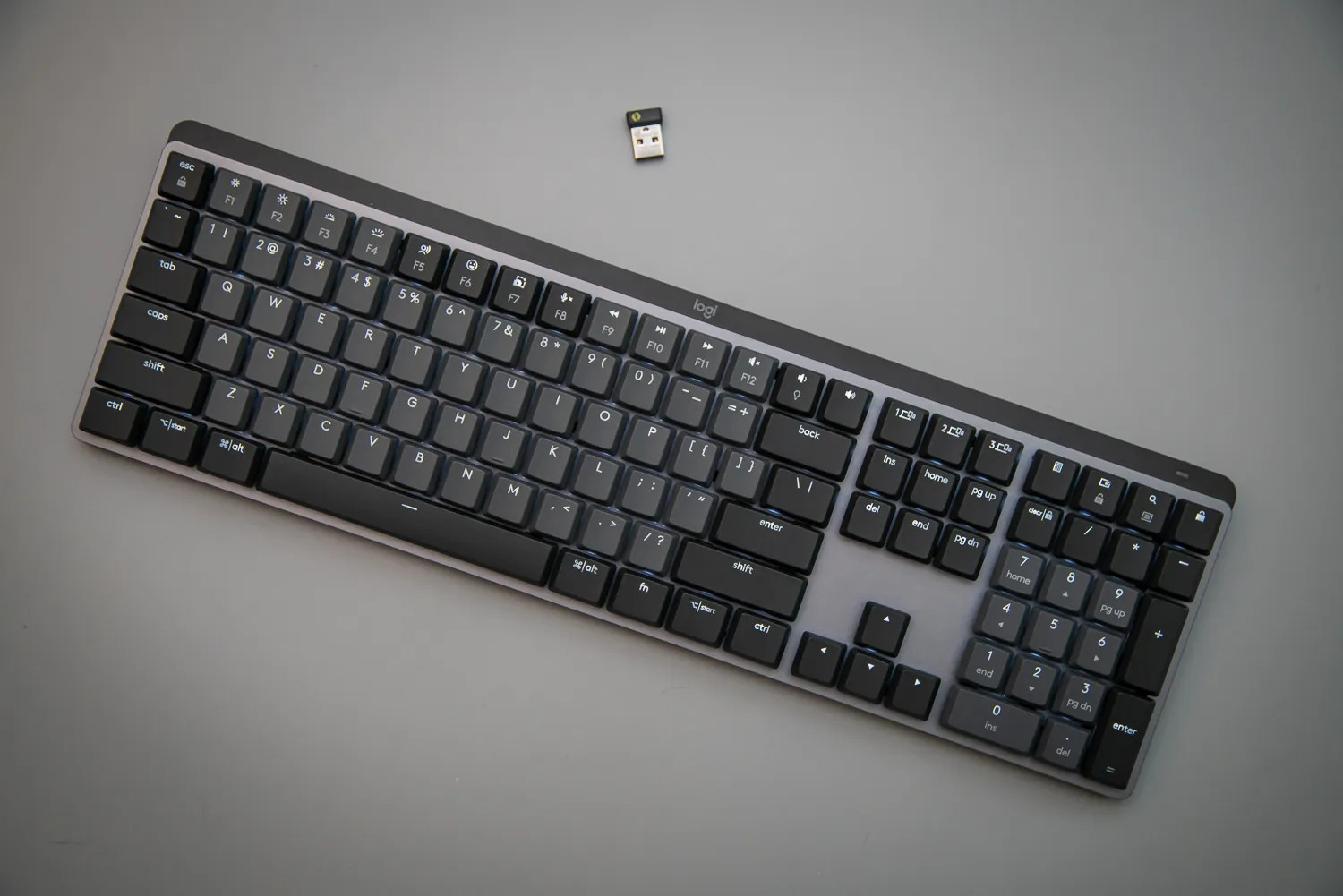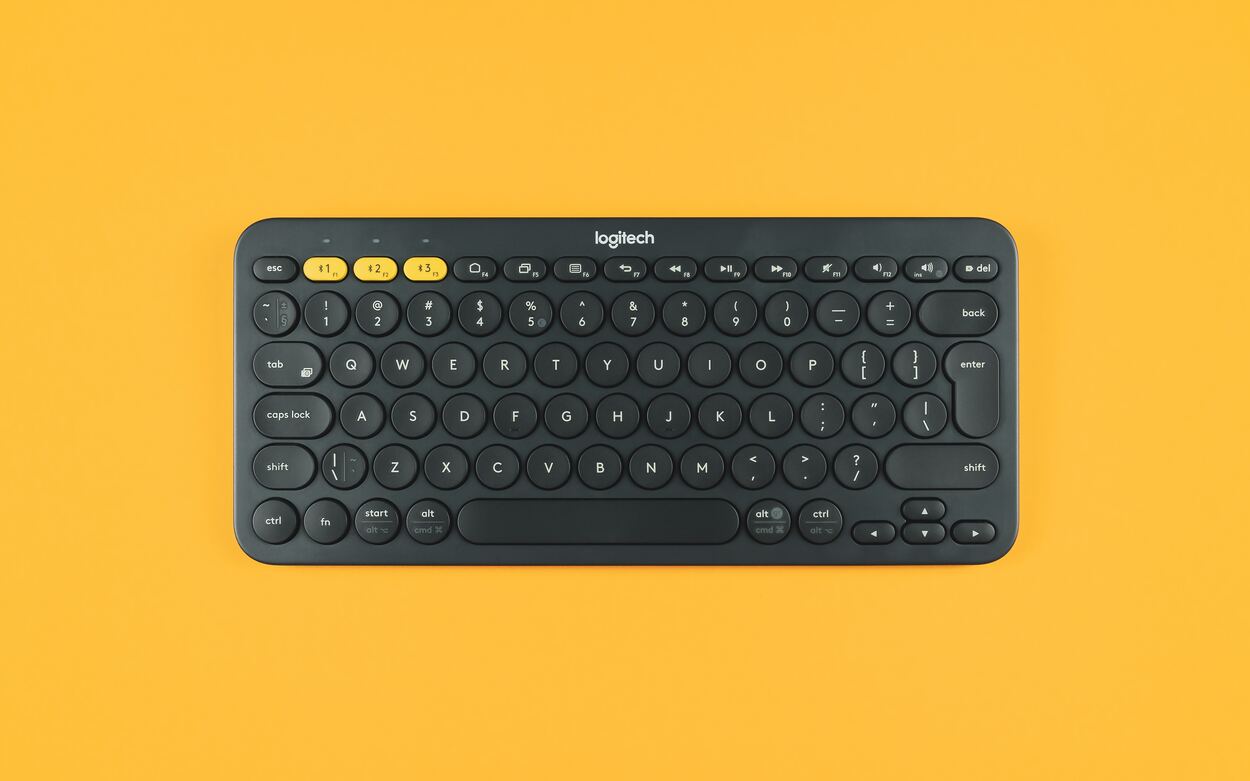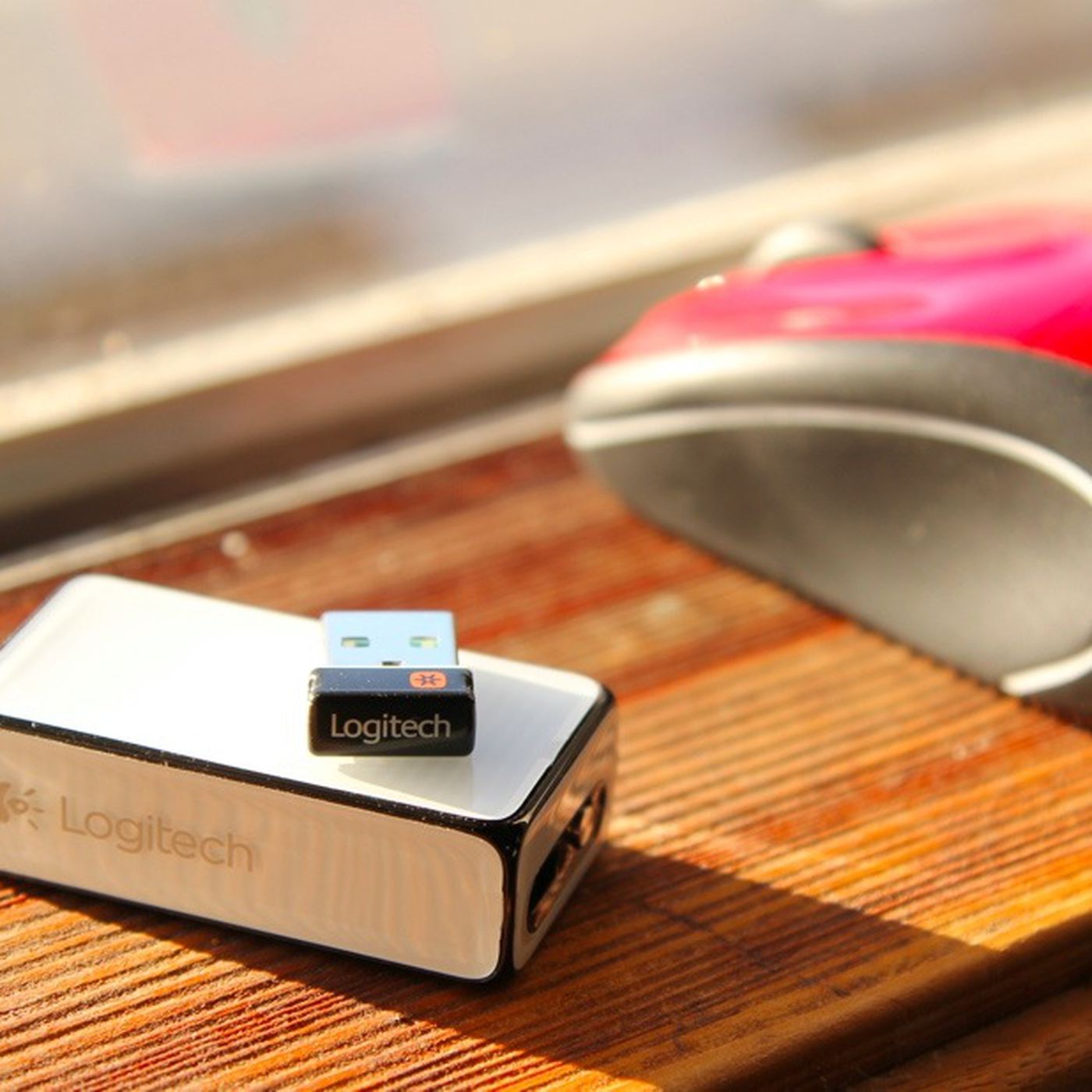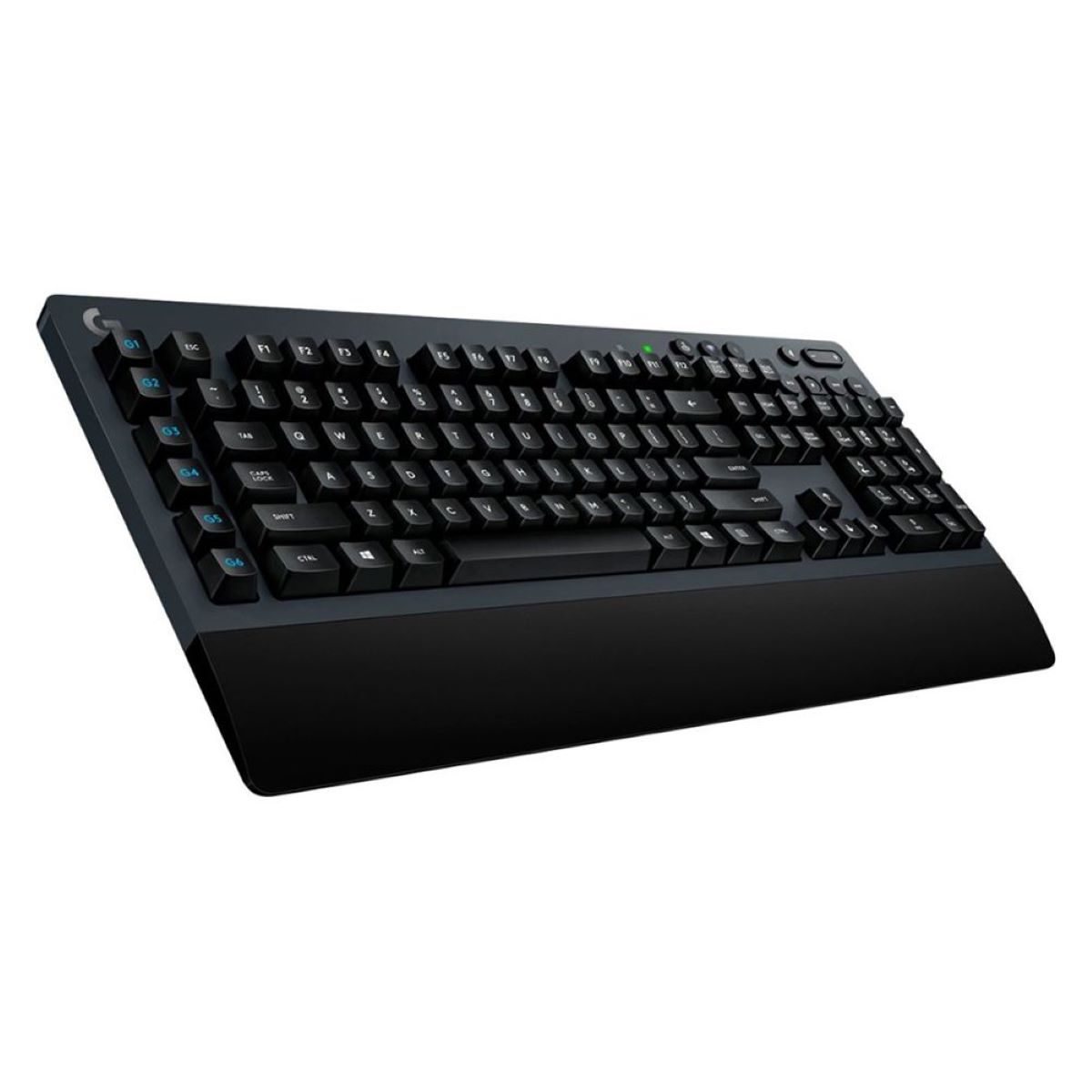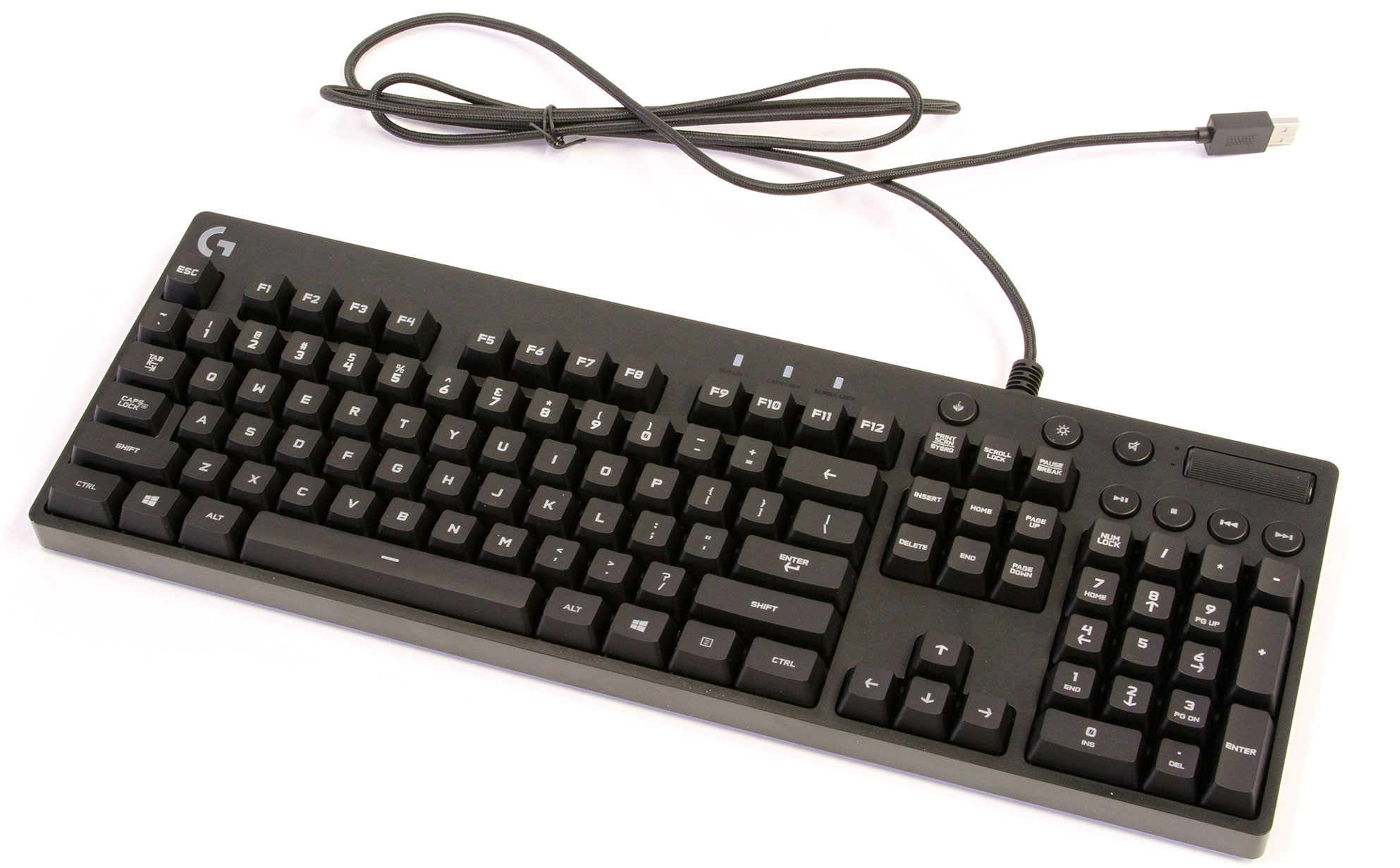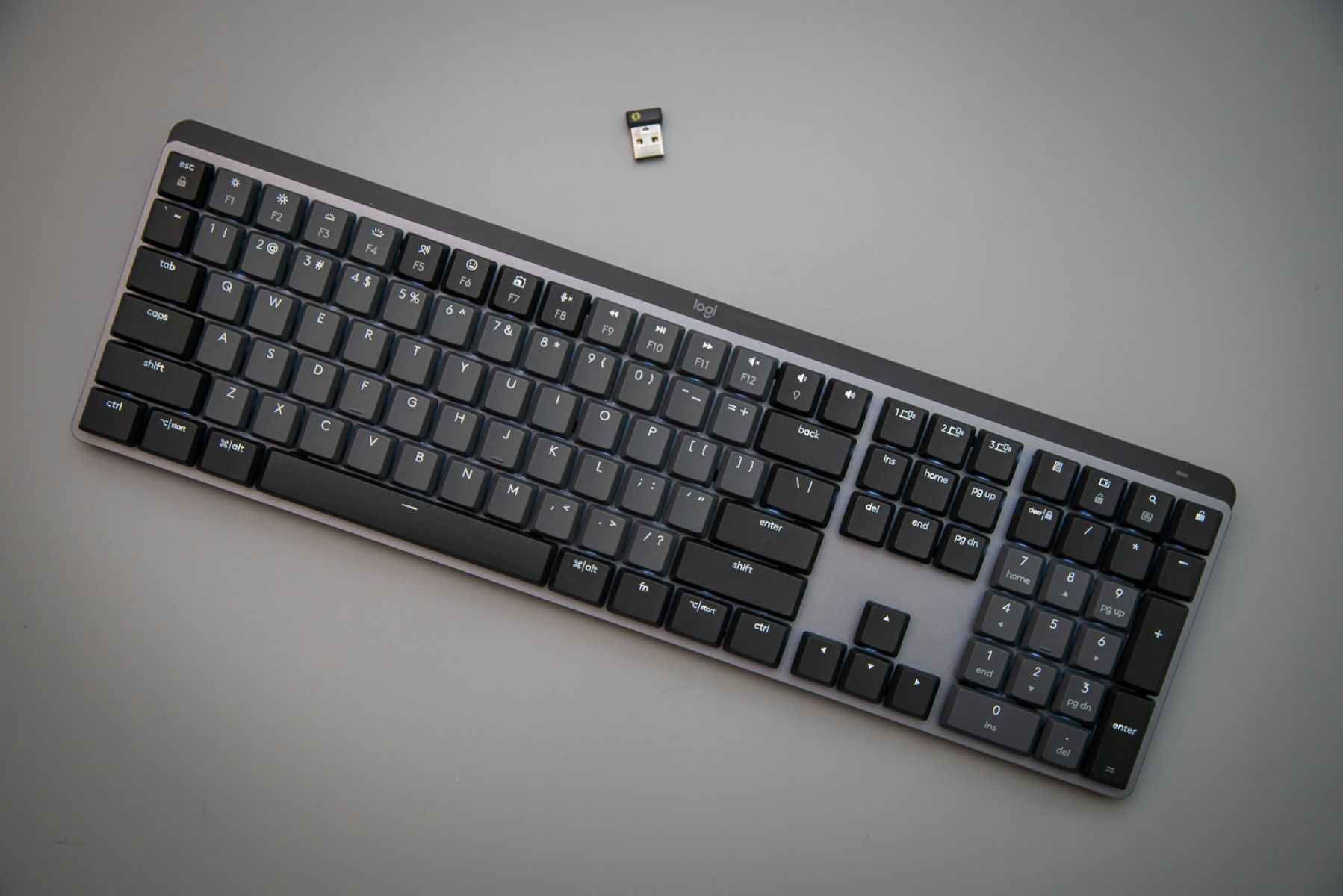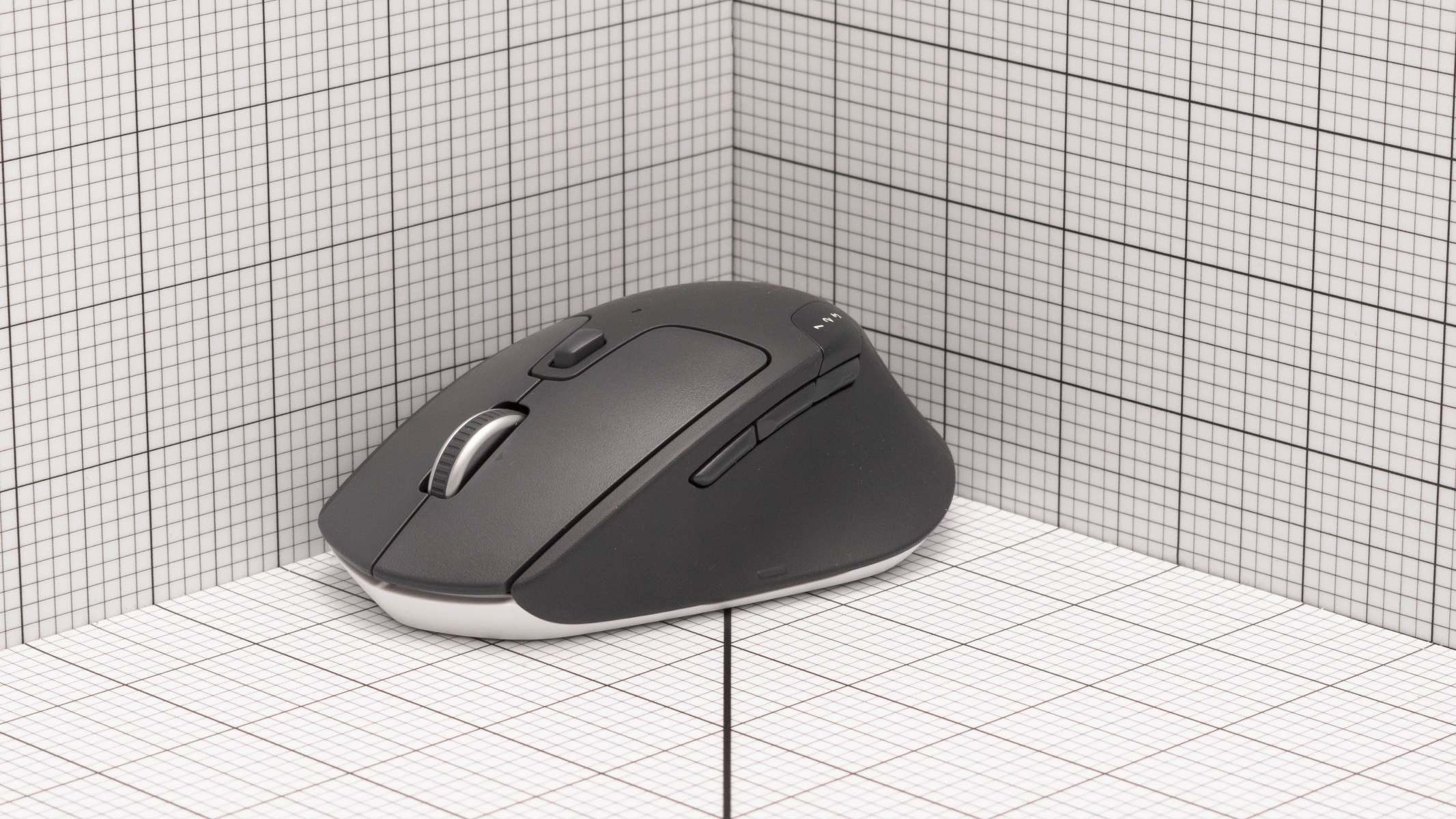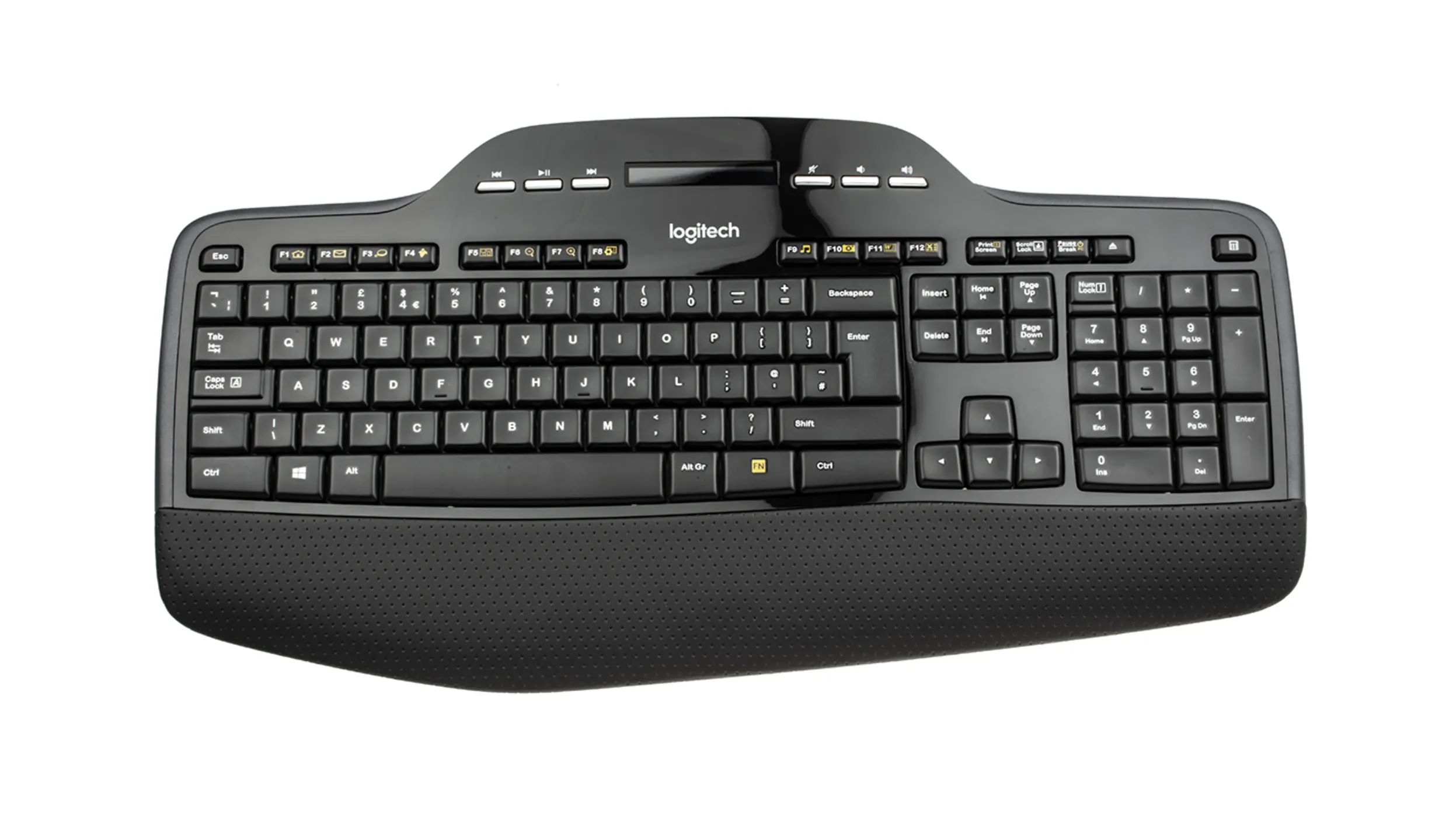Introduction
Welcome to our guide on troubleshooting the common issue of a lagging Logitech wireless keyboard. As avid computer users, we understand the frustration that comes with experiencing delays while typing or navigating through your computer. A lagging keyboard can significantly hinder your productivity and overall user experience. However, it’s important to note that this problem can occur due to various reasons, and it’s crucial to identify the root cause before implementing potential solutions.
In this article, we will explore the possible reasons behind a Logitech wireless keyboard lagging and provide you with troubleshooting steps to resolve the issue. Whether you use the keyboard for work, gaming, or casual browsing, understanding and addressing this problem can help you get back to seamless and efficient typing.
Before we delve into the possible causes and solutions, it’s worth emphasizing the importance of maintaining and troubleshooting your wireless keyboard. Regularly updating drivers, checking for firmware updates, and ensuring adequate power supply can often prevent keyboard lagging issues. However, if you’re already experiencing the problem, read on to identify the underlying cause and follow the troubleshooting steps to resolve it.
Please note that the following solutions are specifically tailored to Logitech wireless keyboards. While the concepts discussed may apply to other wireless keyboards as well, it’s always advisable to refer to the manufacturer’s instructions or support forums for any keyboard-specific troubleshooting steps.
Possible Reasons for Keyboard Lagging
When your Logitech wireless keyboard starts lagging, it can be frustrating and impact your productivity. Understanding the possible causes of this issue can help you troubleshoot and resolve it effectively. Here are some common reasons why your keyboard might be experiencing lag:
- Interference with wireless signals: Wireless keyboards, including Logitech models, rely on radio frequency signals to communicate with the receiver. Other electronic devices, such as cordless phones, routers, and even microwaves, can interfere with these signals and cause lag. Ensuring that there are no other devices nearby that may disrupt the wireless connection can help eliminate this issue.
- Low battery: If your wireless keyboard’s battery is running low, it may lead to lagging or unresponsive keys. It’s essential to check the battery level and replace it if necessary. Most Logitech wireless keyboards come with a battery indicator light to help you monitor the battery status.
- Distance from the receiver: The receiver, typically a USB dongle, needs to be within a certain range for the keyboard to function optimally. If the distance between the keyboard and the receiver is too far, it can result in lag. Ensure that the keyboard is within the recommended range of the receiver, usually around six feet or less.
- Software issues: Occasionally, software conflicts or glitches may cause keyboard lag. Outdated or incompatible software, drivers, or operating system updates can all contribute to this problem. Checking for any pending updates and ensuring that the software is up to date can help resolve such issues.
- Driver compatibility: In some cases, outdated or incompatible keyboard drivers can lead to lagging. Logitech periodically releases driver updates to improve performance and address compatibility issues. Updating the keyboard drivers to the latest version can help alleviate any lagging problems.
- Bluetooth interference: If you’re using a Bluetooth-enabled Logitech keyboard, interference from other Bluetooth devices or wireless networks in the vicinity can cause lag. Make sure there are no other nearby devices that may interfere with the Bluetooth signal and move the keyboard to a different location if needed.
- USB port issues: Faulty or malfunctioning USB ports on your computer can also cause keyboard lag. Try plugging the receiver into a different USB port to determine if the issue lies with the port itself.
Identifying the specific reason for your Logitech wireless keyboard lagging is crucial in order to apply the appropriate solution. In the following sections, we will guide you through troubleshooting steps to help resolve this issue and restore the smooth functioning of your keyboard.
Interference with Wireless Signals
One of the common reasons for a Logitech wireless keyboard lagging is interference with wireless signals. Wireless keyboards, including those manufactured by Logitech, use radio frequency signals to connect with the receiver, which allows the transmission of keystrokes to your computer. However, other electronic devices operating on a similar radio frequency band can interfere with these signals and cause keyboard lag. Here are some steps you can take to minimize interference:
- Keep distance from other devices: Ensure that there are no electronic devices located near your keyboard or its receiver that could potentially interfere with the wireless signals. Devices such as cordless phones, routers, and even microwave ovens can emit radio signals that disrupt the keyboard’s connection. By maintaining a clear space around your keyboard setup, you can reduce the potential for interference.
- Use USB ports away from interfering devices: If there are nearby devices emitting radio signals, try plugging the receiver into a USB port that is physically farther away from those devices. This can help create more distance between the interfering signals and your Logitech keyboard, minimizing the likelihood of interference.
- Adjust your Wi-Fi channel: In some cases, Wi-Fi signals can interfere with the radio frequency used by your wireless keyboard. If you notice persistent keyboard lag, consider changing the Wi-Fi channel on your router. This can be done by accessing your router’s settings and selecting a less crowded channel. Consult your router’s documentation or the manufacturer’s website for instructions specific to your model.
- Place the receiver in an optimal location: Position the receiver in a location that allows for the best possible reception of wireless signals from the keyboard. Ideally, place it in a direct line of sight with the keyboard, without any obstructions that could disrupt the signal. Experiment with different receiver placements to find the most optimal position.
- Use a USB extension cable: If you are still experiencing interference, consider using a USB extension cable to position the receiver farther away from any potential sources of interference. This can help improve the stability of the wireless signal, reducing the chances of keyboard lag.
By minimizing interference with wireless signals, you can significantly improve the performance of your Logitech wireless keyboard. If, however, the keyboard lag persists, it’s important to consider other potential causes and continue with the troubleshooting steps outlined in this guide.
Low Battery
Another culprit behind a Logitech wireless keyboard lagging is a low battery. Wireless keyboards rely on batteries to power their operations, and when the battery charge drops below a certain level, it can result in lag and unresponsive keys. Here’s what you can do to address this issue:
- Check the battery level: Look for a battery indicator light on your Logitech wireless keyboard. This light typically indicates the current status of the battery. If it is blinking or showing a low battery signal, it’s time to replace the batteries.
- Replace the batteries: To ensure optimal performance, replace the old batteries with fresh ones. Make sure to use batteries with the correct specifications recommended by Logitech for your specific keyboard model. Dispose of old batteries properly and follow any recycling guidelines provided in your area.
- Consider rechargeable batteries: If you find yourself frequently replacing batteries, consider using rechargeable batteries instead. This environmentally-friendly option can save you money in the long run and help reduce waste.
- Switch off when not in use: If you’re not actively using your wireless keyboard, consider switching it off to conserve battery life. Many Logitech keyboards have a power switch or an automatic sleep mode feature that helps extend battery longevity. By implementing such power-saving measures, you can reduce the frequency of low battery issues.
Regularly checking the battery level of your Logitech wireless keyboard and replacing the batteries as needed can significantly resolve keyboard lag caused by low battery charge. Remember to use high-quality batteries and handle them with care to ensure optimal performance.
If you have replaced the batteries and the keyboard lag persists, continue with the troubleshooting steps outlined in this guide to identify and resolve any other potential causes for the issue.
Distance from the Receiver
The distance between your Logitech wireless keyboard and its receiver can have a significant impact on its performance. If the keyboard is too far away from the receiver, it can result in keyboard lag and unresponsive keys. To address this issue, consider the following steps:
- Check the recommended range: Logitech wireless keyboards typically have a specified range within which they can operate optimally. Refer to the user manual or the manufacturer’s website to determine the recommended distance between the keyboard and its receiver. This range is typically around six feet or less.
- Reposition the receiver: If your keyboard is situated at the outer edge of the recommended range, try repositioning the receiver to bring it closer to the keyboard. Experiment with different placements to find the ideal position that minimizes lag and ensures a stable connection.
- Remove any obstructions: Ensure that there are no physical obstructions, such as walls or furniture, blocking the line of sight between the keyboard and the receiver. Any obstruction can weaken the wireless signal and lead to lagging. If necessary, rearrange your setup or adjust the position of objects to optimize the signal path.
- Avoid other wireless devices: Other wireless devices operating on the same frequency band can interfere with the connection between the keyboard and the receiver. If possible, keep the keyboard away from other wireless devices like routers or Bluetooth devices. This can help reduce interference and improve the signal quality.
- Consider using a USB extension cable: If repositioning the receiver does not alleviate the keyboard lag, try using a USB extension cable. This allows you to move the receiver closer to the keyboard, effectively reducing the distance between them and potentially improving the wireless connection.
By ensuring that your Logitech wireless keyboard is within the recommended range and minimizing any obstacles or interference, you can enhance its performance and reduce lag. If you’ve followed these steps and the keyboard lag persists, continue with the troubleshooting steps outlined in this guide to address any other potential causes for the issue.
Software Issues
Software conflicts or glitches can also contribute to a Logitech wireless keyboard lagging. Outdated or incompatible software, drivers, or operating system updates can disrupt the keyboard’s functionality and cause delays. Consider the following steps to address potential software-related issues:
- Check for updates: Ensure that your operating system and any relevant software are up to date. Operating system updates often include bug fixes and improvements that can resolve keyboard lag issues. Look for pending updates and install them to ensure that you have the latest software versions.
- Update keyboard drivers: Logitech periodically releases driver updates to enhance keyboard performance and address compatibility issues. Visit Logitech’s official website and look for the drivers specific to your keyboard model. Download and install the latest drivers to ensure compatibility and optimal performance.
- Reinstall the keyboard software: If you’re experiencing persistent keyboard lag, try reinstalling the Logitech keyboard software. Uninstall the existing software first and then download the latest version from Logitech’s website. Follow the installation instructions carefully to ensure a proper installation.
- Check for conflicting software: Some third-party software applications, especially those related to keyboard mapping or customization, may conflict with the Logitech keyboard software. Temporarily disable or uninstall any such software to determine if they were causing the keyboard lag. If the issue resolves after removing a specific software, consider alternatives or updated versions that are compatible with your Logitech keyboard.
- Perform a system restart: Sometimes, a simple system restart can resolve software conflicts and temporary glitches. Restart your computer after making any software updates or changes to ensure that the newly installed software is properly integrated into your system.
Addressing potential software issues can often resolve keyboard lag. By keeping your software up to date, updating keyboard drivers, and checking for conflicting applications, you can minimize software-related problems. If the lagging issue persists, continue with the troubleshooting steps outlined in this guide to identify and resolve any other potential causes.
Driver Compatibility
Driver compatibility plays a crucial role in the smooth functioning of a Logitech wireless keyboard. Outdated or incompatible drivers can cause keyboard lag and other performance issues. To address driver-related compatibility issues, consider the following steps:
- Check for driver updates: Visit the Logitech website and look for driver updates specific to your keyboard model. Logitech periodically releases updates to improve compatibility and performance. Download and install the latest drivers to ensure that your keyboard is using the most compatible software.
- Uninstall and reinstall drivers: If you have already installed the latest drivers but are still experiencing keyboard lag, try uninstalling and reinstalling them. This can help resolve any potential installation or compatibility issues that may be causing the problem.
- Try generic keyboard drivers: In some cases, using generic keyboard drivers provided by your operating system can help resolve compatibility issues. Uninstall the Logitech-specific drivers and allow your operating system to automatically install the generic drivers. Test the keyboard to see if the lagging issue has been resolved.
- Check for conflicting drivers: Conflicting drivers from other devices connected to your computer can interfere with the Logitech keyboard’s functionality. Disable or uninstall any unnecessary drivers and devices to determine if they were causing the compatibility issue. If the keyboard lag disappears after removing a specific driver or device, consider alternative solutions or updated versions that are compatible with the Logitech keyboard.
- Ensure compatibility with the operating system: Verify that your Logitech keyboard is compatible with your operating system. Logitech provides compatibility information for their keyboards on their website. If your operating system is not listed as compatible, it may cause driver compatibility issues, leading to keyboard lag. In such cases, consider upgrading your operating system or contacting Logitech support for further assistance.
By updating or reinstalling the appropriate drivers, you can ensure that your Logitech wireless keyboard is compatible with your system and minimize the chances of keyboard lag. If you have followed these steps and are still experiencing lagging issues, proceed with the troubleshooting steps outlined in this guide to identify and resolve any other potential causes.
Bluetooth Interference
If you’re using a Bluetooth-enabled Logitech keyboard, interference from other Bluetooth devices or wireless networks in the vicinity can cause keyboard lag. Bluetooth operates on the 2.4 GHz frequency, which is also used by various other devices. To address potential Bluetooth interference, consider the following steps:
- Turn off nearby devices: If there are other Bluetooth devices nearby, such as smartphones, tablets, or other keyboards, turn them off. This can help reduce the chances of interference and improve the stability of the Bluetooth signal for your Logitech keyboard.
- Change the wireless channel: In certain cases, changing the wireless channel used by your Bluetooth device can reduce interference. Consult the user manual or the manufacturer’s website for instructions on how to change the wireless channel of your Logitech keyboard. Experiment with different channels to find the one with the least amount of interference.
- Relocate the keyboard and receiver: If you continue to experience lag, try moving the keyboard and receiver to a different location. Physical obstructions such as walls or furniture can weaken the Bluetooth signal. Find a spot with fewer obstacles between your Logitech keyboard and the Bluetooth receiver to improve the signal strength.
- Adjust Wi-Fi network settings: Wi-Fi networks operating on the 2.4 GHz frequency can also interfere with Bluetooth signals. If your wireless router is located close to your Logitech keyboard setup, consider changing the Wi-Fi channel to reduce interference. Access your router’s settings and select a less crowded channel. Refer to the router’s documentation or the manufacturer’s website for specific instructions.
- Use wired connection instead: If the Bluetooth interference persists despite trying the above steps, consider using a wired connection instead. Many Logitech wireless keyboards come with a USB option that allows you to connect the keyboard directly to your computer using a USB cable. This bypasses any potential Bluetooth interference and can provide a more stable and reliable connection.
By minimizing Bluetooth interference, you can enhance the performance of your Logitech wireless keyboard. If you’ve followed these steps and the keyboard lag persists, continue with the troubleshooting steps outlined in this guide to identify and resolve any other potential causes.
USB Port Issues
Faulty or malfunctioning USB ports on your computer can also contribute to a Logitech wireless keyboard lagging. USB port issues can range from power supply problems to hardware conflicts. Consider the following steps to address potential USB port-related problems:
- Try a different USB port: If you’re experiencing keyboard lag, try plugging the receiver into a different USB port on your computer. Some USB ports may have better power supply or connectivity, which can help resolve the lagging issue.
- Use a USB hub: If you have limited available USB ports or the ports seem to have issues, try using a powered USB hub. A powered USB hub can provide stable power supply and eliminate any potential conflicts, which could improve the performance of your Logitech wireless keyboard.
- Check for physical damage or debris: Inspect the USB ports on your computer for any signs of physical damage or debris that could be obstructing the connection. Ensure that the ports are clean and clear of any dust, lint, or other foreign objects that may be causing the lagging issue.
- Update USB drivers: Outdated or incompatible USB drivers can cause various issues, including keyboard lag. Check for any available updates for your computer’s USB drivers and install them accordingly. This can help optimize the USB port’s performance and resolve any compatibility issues.
- Restart your computer: Sometimes, a simple system restart can resolve temporary USB port issues. Restart your computer and check if the keyboard lag persists. Restarting can refresh the system and resolve any minor glitches that may be affecting the USB ports.
- Consult a technician: If you’ve tried the above steps and are still experiencing issues with your USB ports, it may be best to consult a technician or contact the manufacturer for further assistance. They can provide expert advice and help diagnose and fix any underlying hardware problems with your USB ports.
By addressing USB port-related issues, you can improve the performance of your Logitech wireless keyboard. If you’ve followed these steps and the keyboard lag persists, continue with the troubleshooting steps outlined in this guide to identify and resolve any other potential causes.
Troubleshooting Steps
If you have tried the specific solutions for each potential cause of keyboard lag mentioned above and are still experiencing the issue, here are some general troubleshooting steps that can help you resolve the problem:
- Restart your computer: A simple system restart can often resolve temporary glitches or conflicts that may be causing keyboard lag. Restart your computer and check if the issue persists.
- Update your operating system: Ensure that your operating system is up to date. System updates often include bug fixes and optimizations that can help resolve keyboard lag issues. Check for any pending updates and install them.
- Disconnect and reconnect the receiver: Unplug the receiver from the USB port and wait for a few seconds before plugging it back in. This can help refresh the connection between the keyboard and the receiver. After reconnecting, wait for the computer to detect the receiver and check if the lagging issue persists.
- Test the keyboard on a different computer: If possible, try connecting the Logitech wireless keyboard to a different computer. This can help determine if the issue is specific to your computer or if it persists across multiple devices. If the keyboard works fine on another computer, it may indicate a problem with your computer’s hardware or software.
- Reset the keyboard: Some Logitech keyboards have a reset button or a specific key combination that allows you to reset the keyboard to its default settings. Consult the keyboard’s user manual or visit the Logitech website for instructions on how to perform a reset. After resetting, check if the lagging issue is resolved.
- Contact Logitech support: If you have exhausted all troubleshooting steps and the keyboard lag issue persists, it may be necessary to reach out to Logitech support for further assistance. They can provide specific troubleshooting guidance based on your keyboard model and help you resolve the issue.
By following these general troubleshooting steps, you can narrow down the cause of the keyboard lag and take appropriate actions to resolve it. Remember to document any changes or steps you have taken throughout the troubleshooting process, as this information can be helpful when seeking technical support.
Conclusion
Dealing with a Logitech wireless keyboard lagging can be a frustrating experience, but with the right troubleshooting steps, you can overcome this issue and regain a seamless typing experience. Throughout this guide, we have explored several potential causes of keyboard lag, such as interference with wireless signals, low battery, distance from the receiver, software issues, driver compatibility, Bluetooth interference, and USB port issues. We provided helpful solutions for each of these causes.
It’s important to remember that identifying the specific reason for the keyboard lag is crucial before implementing the appropriate solution. By following the troubleshooting steps outlined in this guide, you can eliminate common causes of keyboard lag and restore optimal performance to your Logitech wireless keyboard.
Additionally, we emphasized the importance of regular maintenance and keeping your software, drivers, and operating system up to date to prevent keyboard lag in the first place. Taking care of your keyboard and following best practices can help minimize the likelihood of encountering lagging issues in the future.
If, despite following the troubleshooting steps, you are still experiencing keyboard lag, it may be necessary to seek technical support from Logitech or consult a professional technician. They can provide specific guidance and assistance tailored to your keyboard model and computer setup.
We hope this guide has been helpful in troubleshooting and resolving the keyboard lag issue with your Logitech wireless keyboard. Remember, a little patience and perseverance can go a long way in resolving technical issues. Happy typing!







